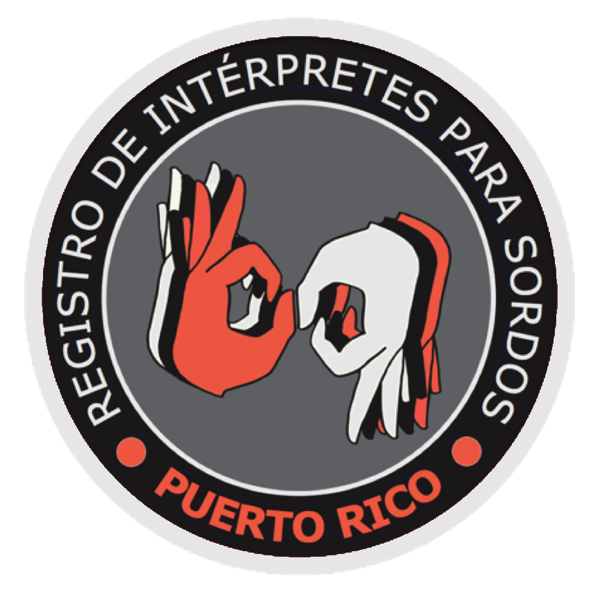|
Un código de ética es un componente necesario en culquier profesión para mantener los estándares de los individuos dentro de la profesión. Genera responsabilidad y confianza a los individuos a los que le sirve la profesión.
El 12 de diciembre de 2020, los miembros de RISPRI aprobaron el siguiente Código de Ética.
Este Código de Ética aplica a todos los intérpretes y estudiantes de interpretación en Puerto Rico y se aplica a todas las situaciones interpretadas que se realicen ya sea de manera presencial o remota, pagadas o pro bono. Este Código de Ética no representa leyes locales y / o federales, es una guía de conducta profesional en la profesión de interpretación de lenguaje de señas en Puerto Rico. Las leyes federales, estatales o de otro tipo pueden reemplazar este Código de Ética. Cuando haya un conflicto entre este Código de Ética y las leyes locales o federales, los intérpretes obedecerán a las leyes. Las decisiones que toman los intérpretes y las consecuencias de sus acciones deben ser observadas y consideradas en base a estas pautas. El propósito de este Código de Ética es reforzar el concepto de que los intérpretes no harán daño.

|
A code of ethics is a necessary component to any profession to maintain standards for the individuals within that profession. It brings about accountability, responsibility and trust to the individuals that the profession serves.
The membership of RISPRI approved the following Code of Ethics on December 12, 2020.
This Code of Ethics applies to all interpreters and interpreting students in Puerto Rico and applies to all interpreted situations that are performed either face-to-face or remotely, paid or pro bono. This Code of Ethics does not represent local and/or federal laws, it is a guide to professional conduct in the profession of sign language interpreting in Puerto Rico. Federal, state or other laws may supersede this Code of Ethics. When there is a conflict between this Code of Ethics and local or federal laws, interpreters will obey the rule of law. The decisions interpreters make and the consequences of their actions should be observed and considered based on these guidelines. The purpose of this Code Ethics is to reinforce the concept that interpreters will do no harm.
RISPRI Código de Ética: Guías de Conducta Profesional Este Código de Ética aplica a todos los intérpretes y estudiantes de interpretación en Puerto Rico y se aplica a todas las situaciones interpretadas que se realicen ya sea de manera presencial o remota, pagadas o pro bono. Este Código de Ética no representa leyes locales y / o federales, es una guía de conducta profesional en la profesión de interpretación de lenguaje de señas en Puerto Rico. Las leyes federales, estatales o de otro tipo pueden reemplazar este Código de Ética. Cuando haya un conflicto entre este Código de Ética y las leyes locales o federales, los intérpretes obedecerán a las leyes. Las decisiones que toman los intérpretes y las consecuencias de sus acciones deben ser observadas y consideradas en base a estas pautas. El propósito de este Código de Ética es reforzar el concepto de que los intérpretes no harán daño. Valores fundamentales I. Confianza y Confidencialidad II. Integridad Profesional III. Prácticas Profesionales
I. Confianza y Confidencialidad
II. Integridad Profesional
III. Prácticas Profesionales
Este Código de Ética fue desarrollado por el Comité de Ética, un subcomité del Comité de Certificación, del Registro de Intérpretes para Sordos de Puerto Rico en cooperación y colaboración con miembros de la comunidad de personas sordas de Puerto Rico. Miembros del Comité de Ética: Ricardo I. Ortiz, Angelique García Solá, Lucas Soto y Gordon Vernon. |
|
© Copyright 2016-2023 | Derechos de autor 2016-2023
Registro de Intérpretes para Sordos de Puerto Rico, Inc.
Foto del banner cortesía de Rincon Vacations | Banner photo courtesy of Rincon Vacations






